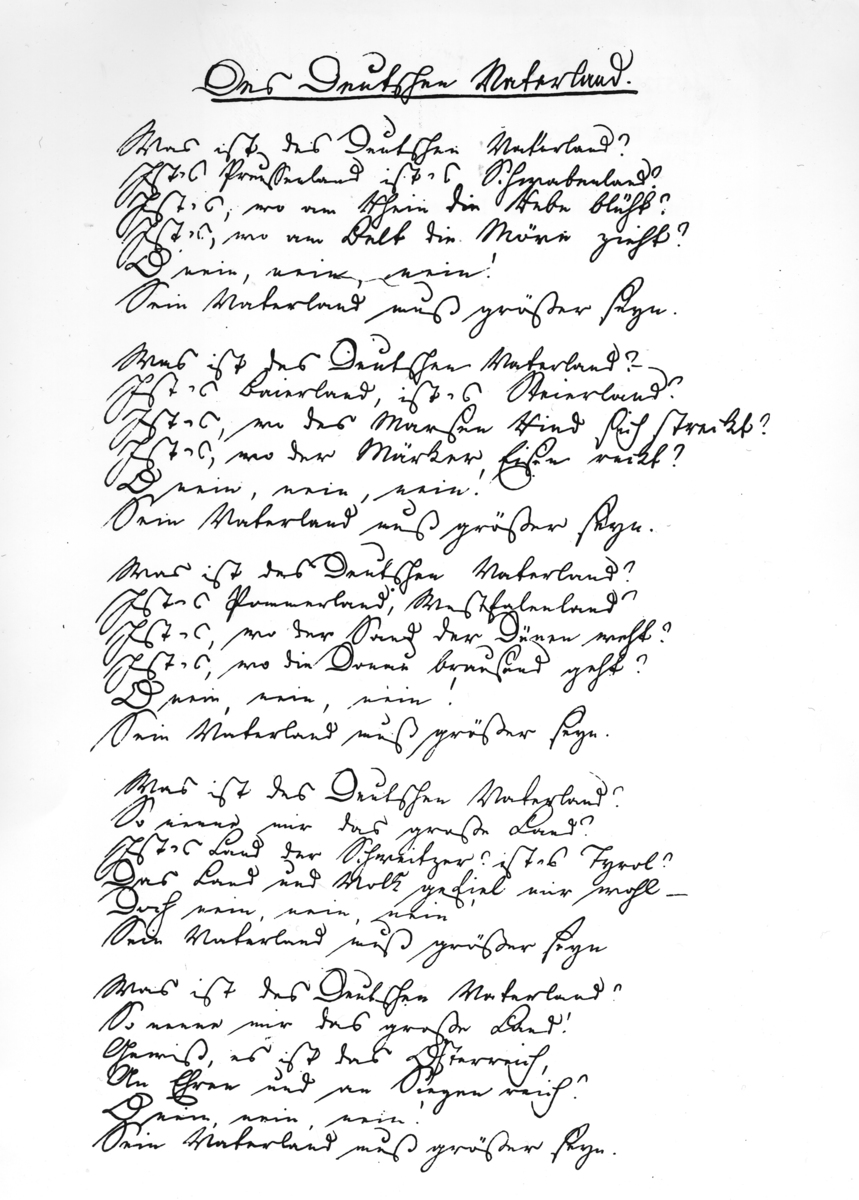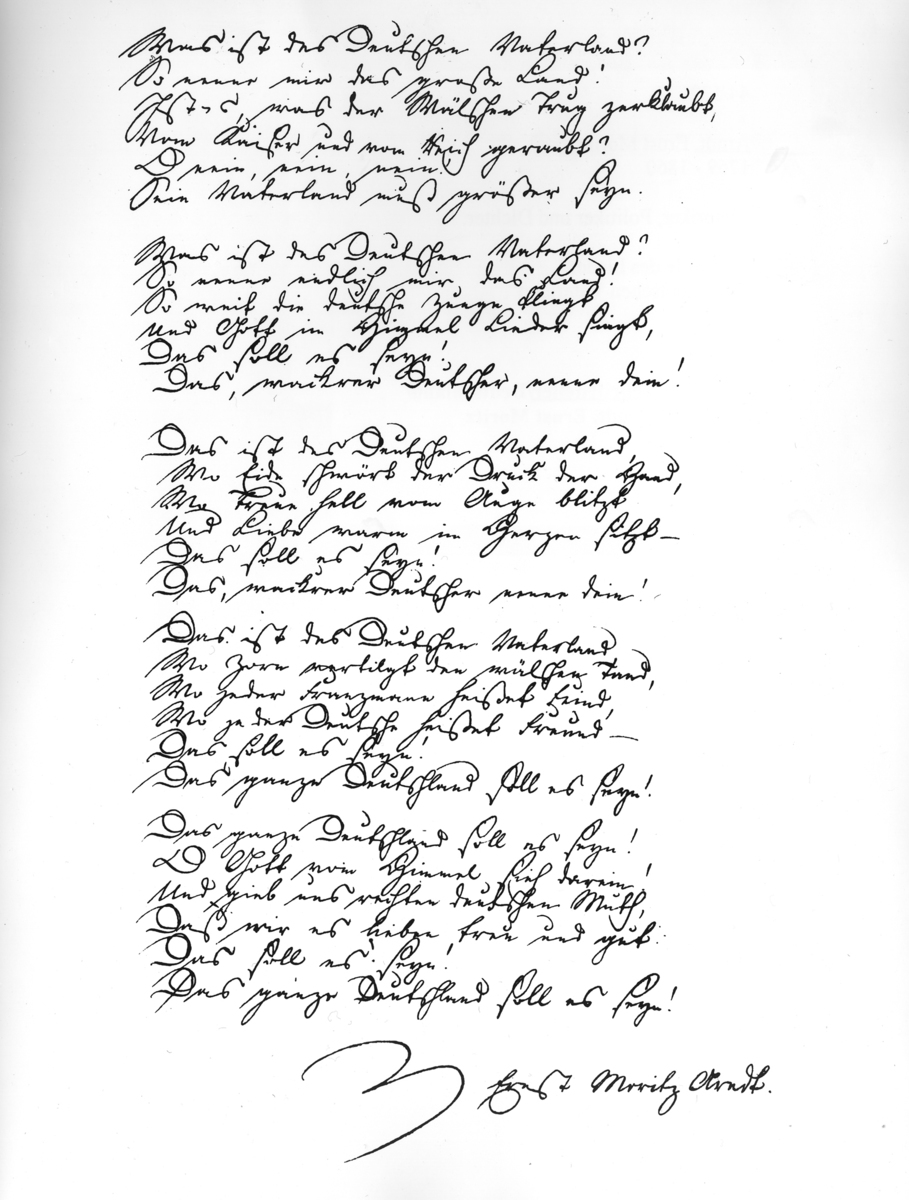Source
The German Fatherland (1813)
Which is the German’s fatherland?
Is’t Prussia’s or Swabia’s land?
Is’t where the Rhine’s rich vintage streams?
Or where the Northern seagull screams?—
Ah, no, no, no!
His fatherland’s not bounded so!
Which is the German’s fatherland?
Bavaria’s or Styria’s land?
Is’t where the Marsian ox unbends?
Or where the Marksman iron rends?—
Ah, no, no, no!
His fatherland’s not bounded so.
Which is the German’s fatherland?
Pomerania’s, or Westphalia’s land?
Is it where sweep the Dunian waves?
Or where the thundering Danube raves?—
Ah, no, no, no!
His fatherland’s not bounded so!
Which is the German’s fatherland?
O, tell me now the famous land!
Is’t Tyrol, or the land of Tell?
Such lands and people please me well.—
Ah, no, no, no!
His fatherland’s not bounded so!
Which is the German’s fatherland?
Come, tell me now the famous land.
Doubtless, it is the Austrian state,
In honors and in triumphs great.—
Ah, no, no, no!
His fatherland’s not bounded so!
Which is the German’s fatherland?
So tell me now the famous land!
Is’t what the Princes won by sleight
From the Emperor’s and Empire’s right?—
Ah, no, no, no!
His fatherland’s not bounded so!
Which is the German’s fatherland?
So tell me now at last the land!—
As far’s the German’s accent rings
And hymns to God in heaven sings,—
That is the land,—
There, brother, is thy fatherland!
There is the German’s fatherland,
Where oaths attest the grasped hand,—
Where truth beams from the sparkling eyes,
And in the heart love warmly lies;—
That is the land,—
There, brother, is thy fatherland!
That is the German’s fatherland,
Where wrath pursues the foreign band,—
Where every Frank is held a foe,
And Germans all as brothers glow;—
That is the land,—
All Germany’s thy fatherland!
[…]
Source of English translation: Ernst Moritz Arndt, “The German Fatherland” (1813), in The Poets and Poetry of Europe, with introductions and biographical notes by Henry Wadsworth Longfellow. Philadelphia: Carey and Hart, 1845, pp. 322–33.
Source of original German text: Ernst Moritz Arndt, “Des Deutschen Vaterland” (1813), in Oskar Ludwig Bernhard Wolff, ed., Poetischer Hausschatz des deutschen Volkes. Vollständigste Sammlung deutscher Gedichte, nach den Gattungen geordnet […]. Leipzig: Wigand, 1850, p. 97. Available online at: http://mdz-nbn-resolving.de/urn:nbn:de:bvb:12-bsb10129589-8

